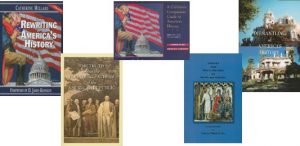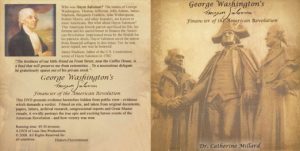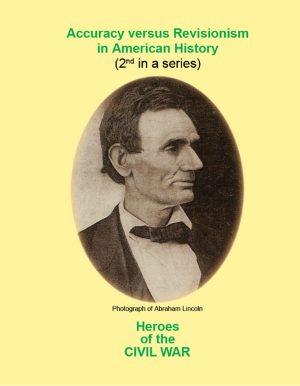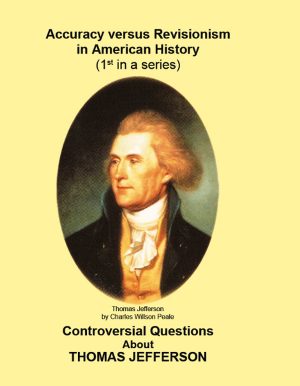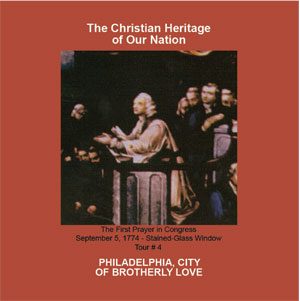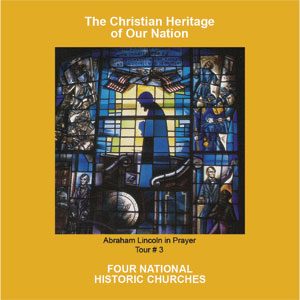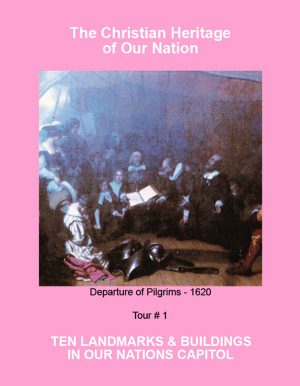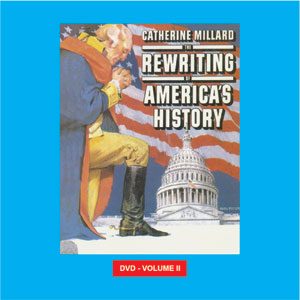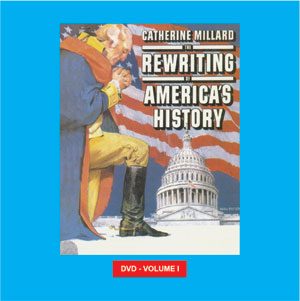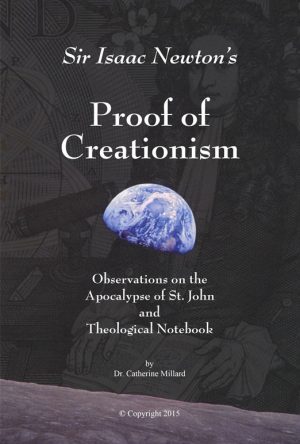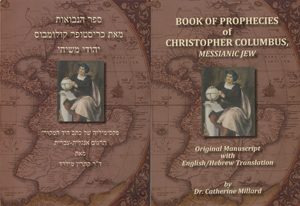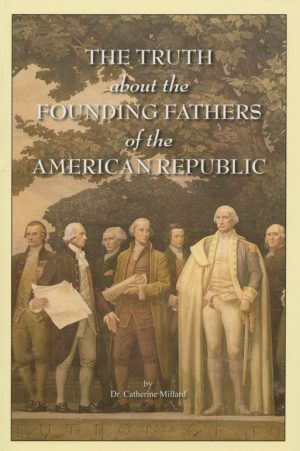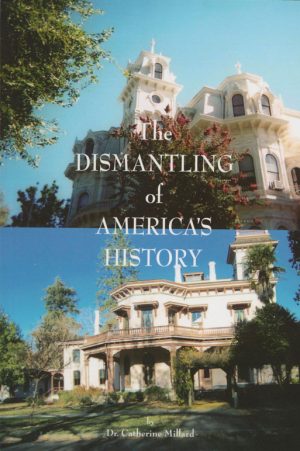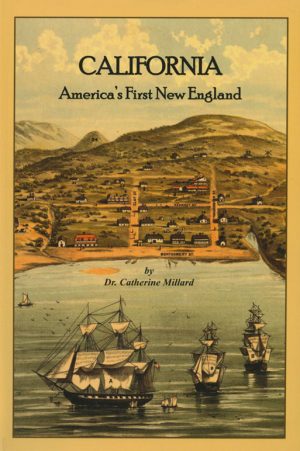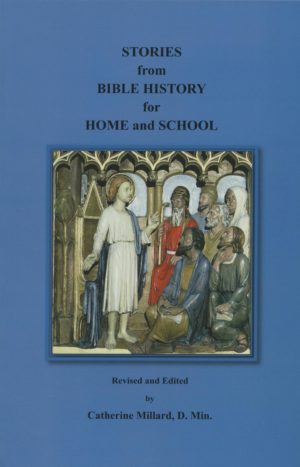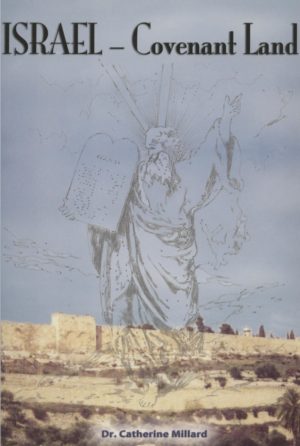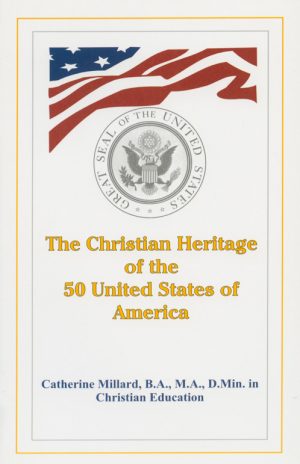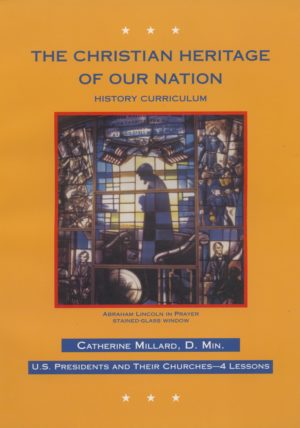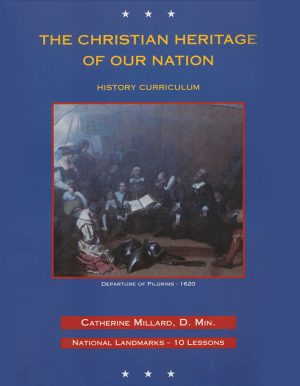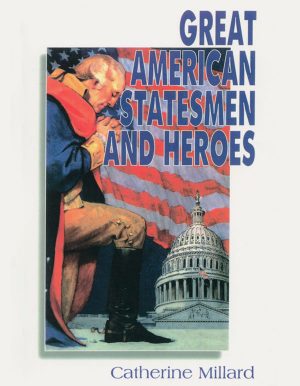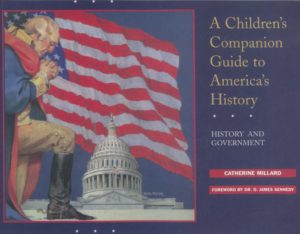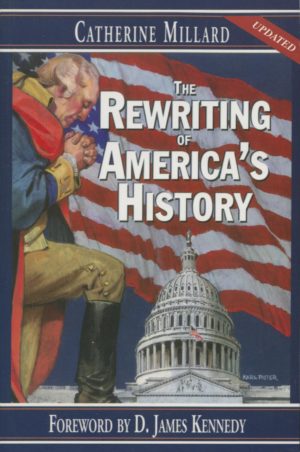The earliest constitutions of several New England colonies were framed upon the model of the Mosaic code as a guide, and the preachers, who were the progressives and radicals of their day, constantly drew their civil creed from the history of those times and held up the old Hebrew commonwealth as a model for our government.
Dr. Samuel Langdon, President of Harvard College, one of the most influential men of his period, in his election sermon before the “Honorable Congress of Massachusetts Bay,” May 3rd, 1775, held up, “The Republic of the Israelites as an Example to American States.”
Dr. George Duffield in the Third Presbyterian Church of Philadelphia, with John Adams as a listener, drew a parallel between George III and Pharaoh.
Dr. Ezra Stiles preached a sermon on, “The United States Elevated to Glory and Honor,” in which he set forth the Hebrew Commonwealth as the model for the new republic. This was true of all the great preachers of that day.
It is therefore not surprising that when a committee was appointed on the day the Declaration of Independence was adopted, consisting of Franklin, Adams and Jefferson, to prepare a device for a seal for the United States, how perfectly natural that they should, as they did propose as such, Pharaoh sitting in an open chariot, a crown on his head and a sword in his hand, passing through the dividing waters of the Red Sea in pursuit of the Israelites, with rays from a pillar of fire, beaming on Moses, who is represented as standing on the shore extending his hand over the sea, causing it to overwhelm Pharaoh, and underneath the motto:
“Rebellion to Tyrants is Obedience to God.”
President Taft on Haym Salomon:
Address given in Washington, D.C.
“It is a great pleasure for me to be here tonight and to hear the eloquent tribute of the orator, Dr. Peters, to what the Jew has done in American history…
Under the influence of my father, who was the broadest man I ever knew, I came to feel that the Jews were a very important part, as they were, of the citizenship of Cincinnati.
And as I attended the public schools, and was prepared for college there, I had occasion to note what Dr. Peters has commented on, that there were some young men and women with “stein” at the end of their names who were always among the first in the class. Everyone who lives in a community like that of my home city of Cincinnati knows that none of the great charities, none of the theatres, none of the societies for art, artistic development, or music, could live if it were not for the support of the Jews.
I believe it to be true, as Dr. Peters says, that the Jews are not very rich, but they are all engaged in making as good a living as they can, and in supporting their families as comfortably as they can, and in upholding the home and the domestic circle as the most important things to be upheld and supported. And so it is that they are a most important part of every community.
It is pathetic almost to see the Jews of the East Side, who come from Russia and elsewhere, seize and enjoy and appreciate the opportunities that are given in this government for education. I have been there to see the energy and the sincerity with which they respond to every patriotic sentiment, feeling, as they do, gratitude to the flag under which they enjoy the educational and other privileges that this government affords.
I believe, and I am proud of the fact, that the Jews in America enjoy an equality that they have in only a few other countries of the world. I don’t mean to say that there are not racial prejudices here; I don’t mean to say that there are not social clubs and other places where the small-headed men who occasionally get into a directory manifest their greatness by using a blackball and shutting out men of importance in the community; but, my friends, while it is aggravating and exasperating, still it is not the worst thing that could happen. I have had it happen to friends of mine – Gentiles – who have been kept out of clubs by people who are not worthy to button up their shoes, and who have no standing save in clubs. It is aggravating, I agree, but a man is what he is by reason of his respect for himself, and if he knows that some one who affects to snub him and look down upon him is not worthy – if he knows that that person is not his equal and he cultivates any of the philosophy that he ought to call to his aid – he will have the advantage over his small-brained and narrow-minded critic always.
I did not come here to make a speech. I came here to second the motion for a memorial to the Jew who stood by Robert Morris and financed the revolution, the friend of Kosciuszko and of Pulaski, both of whom have monuments here – a man who apparently gave all he had, for he had nothing when he died – or at least there was nothing except what he ought to have collected and did not – a man thrown into prison as a spy under Clinton, and who escaped because he could talk ten different languages, and because somebody who had custody of him thought he would be more useful to him as a live interpreter than as a dead man. He subsequently escaped and devoted his entire time and fortune to helping along the cause of the revolution.
It is most interesting to read those letters, to which Dr. Peters has referred, in which Madison speaks of the strapped condition in which he was while he was trying to help out the country as a member of the Congress, and his constant application to his friend Salomon until he became ashamed to go to him, because Salomon would not charge him any interest. Salomon must have had a pretty heavy load to carry in looking after all those Congressmen, but they were necessary to this country, and he knew it. It is not the man only who wears the uniform and carries a gun or a sword and has epaulets that is necessary to effect a successful revolution.
Money is the sinews of war, and the necessity for money impresses itself as the fight goes on, and you will observe that Haym Salomon was most active during these later years, when the strain grew harder in the fight and when people were likely, because of the long struggle, to become tired out and to lose their patriotic interest. Then it was that he negotiated these large loans; then it was that he helped his impecunious associates, and then it was that he entitled himself to the gratitude of the entire country. If there should be erected a memorial to him in Washington to testify to his disinterested self-sacrifice in behalf of his country it would be most appropriate.”
Haym Salomon
Haym Salomon was born at Lissa, Poland, in 1740, of Jewish-Portuguese descent, and it is probable that he left his native country after the partition of Poland in 1772.
Salomon’s family were highly respectable and learned people. He enjoyed the friendships of Kosciuszko and Pulaski, the noble patriots who unsheathed their swords for human liberty.
With his own unhappy country’s history and with his hatred of despotic Russia, Salomon imbibed a love of liberty which extensive travel in Europe intensified, and, as might have been expected, the outbreak of the Revolution found him an ardent supporter of the Colonial cause.
He settled in New York and there married Rachel, daughter of Moses B. Franks, of London, who, as well as his brother, the distinguished Jacob Franks of the Revolutionary war, died in New York while it was yet a colony. Rachel Franks was the sister of Colonel Isaac Franks, a Revolutionary officer of distinction, and of Mayer Isaac Franks, a judge of the Supreme Court of Pennsylvania.
Moses and Jacob Franks were sons of Adam Franks, of Germany, the friend of King George of Hanover and who loaned that monarch the most valuable jewels in his crown at the coronation.
Jacob Franks was the British King’s sole agent for the Northern Colonies at New York, and his son David was the British King’s agent for Pennsylvania.
When the Revolutionary war began, Salomon identified himself with the American cause and was arrested and imprisoned as a spy soon after the occupation of New York by the British in 1776. Salomon was closely confined for a long time in the prison known as “the Provost,” which stood on the spot now occupied by the old Hall of records in the City Hall Park. So closely were the prisoners packed there that when they “laid down at night to rest, when their bones ached, on the hard oak planks, and they wished to turn, it was altogether by command, ‘right – left,’ being so wedged as to form almost a solid mass of solid bodies.”
When Salomon’s linguistic proficiency became known (he knew Polish, French, German, Russian, Spanish and Italian), he was turned over to the Hessian general, Heister, who gave him an appointment in the commissariat department, where his greater liberty enabled him to render much service to the French and American prisoners, many of whom he helped to escape. He created dissension among the Hessian officers, prompting many to resign from the service.
In 1778, he was taken by the British General, Sir H. Clinton, on charges that he had received orders from Washington to burn fleets and destroy their warehouses, “which he had attempted to execute to their great damage and injury.”
He was imprisoned, tortured, and condemned to a military death, but on August 11, 1778, he managed to escape, by compensating his jailor, leaving behind him in New York six thousand pounds sterling, a distressed wife, and child one month old. It seems likely that his intimate friend, the brave General McDougall, who then commanded the American army in the neighborhood of New York, was in co-operation with him. Fourteen days later Salomon addressed a petition to the Continental Congress, setting forth his services and asking for some employment; but, characteristic of the man, he asked not for himself alone, at the same time he entered a plea for the exchange of Samuel Demezes, a fellow prisoner.
Congress turned a deaf ear to his plea and the denial worked for the ultimate good both of Salomon and the young country.
The tide in his affairs, and as the story shows, the tide in the affairs of the young Republic, turned upon his escape to Philadelphia, and it was not long until he succeeded in establishing himself in business, and there becoming one of the greatest financiers of his adopted city.
Salomon’s matchless enterprise, eminent respectability, remarkable intelligence, irreproachable integrity, his delicate sense of mercantile honor, his unbounded benevolence for all mankind, and, above all, his undying hatred of tyranny, soon led to his recognition by the leading men of his time, and the uncompromising, implacable foe to British dominion was brought into intimate relationships with the Revolutionary patriots.
Early in 1781, he made known through the newspapers that he was a dealer in bills of exchange on France and Holland. For the most part the money advanced by Louis XVI and the proceeds of the loans negotiated in Holland passed through his hands. He was entrusted with the negotiation of all the war subsidies of France and Holland on his own personal integrity, which were sold to the resident merchants in America without any loss, at a credit of two and three months, for which he received the small commission of one-fourth of one per cent. Several European financial houses did business through him. A few days after the foregoing announcement, Robert Morris became Superintendent of Finance. Morris’ diary records not less than seventy-five financial transactions with Salomon, between August 1781, and April 1784.
Alexander Hamilton, writing during the dark days of the war to Robert Morris, says: “It is by restoring public credit, not be gaining battles, that we are finally to gain our object.” Haym Salomon brought not only all his wealth to the aid of his adopted country, but a financial insight which, for clearness and depth, was not surpassed by Alexander Hamilton nor equaled by Robert Morris. America found in Haym Salomon a champion equaled by few, his fertility in resource and soundness of financial views made him, through Robert Morris, Superintendent of Finance, the real financier of the Revolution and judged by Alexander Hamilton’s standard of patriotism, surpassed by none, for Haym Salomon was practically the sole agent employed by Morris for negotiating bills of exchange, by which means the credit of the Government was so largely maintained during this period. We do not wish to detract from the glory of Robert Morris, but we do insist that the success Morris obtained in his financial schemes was due to the skill, ability and sacrifice of Haym Salomon.
On July 12, 1782, he requested Morris’ permission to publish the fact that he was broker to the Office of Finance. In reference to this Morris entered into his diary: “This broker has been useful to the public interests…I have consented, as I do not see that any disadvantage can possibly arise to the public service, but the reverse.”
He was appointed broker to the French Consul and the treasurer of the French army and fiscal agent of the French Minister to the United States, Chevalier de la Luzerne, enormous sums passing through his hands. He was the principal depositor of the Bank of North America, an institution founded through the instrumentality of Robert Morris, to serve as a means of obtaining funds to carry on the Government, the first and only bank chartered by the Revolutionary Congress. The accounts of fifteen other merchants who commenced with the opening of the bank occupied, in all, fifteen pages, up to the period of Salomon’s death, while Salomon’s account occupied in all fifteen pages, double columns, of the same ledger. Salomon’s one account was as large as their entire account in the aggregate. The balances at the various times of settlement in his bank book show special balances of from $15.000 to $50,000 at each period. The amount charged by the bank to his account as paid to Robert Morris was over $200,000, while Robert Morris’ own account during the same period had a deposit of less than $l0,000. A further interesting fact is that on a day when Robert Morris deposited $l0,000 in the bank, he received exactly the same amount from Haym Salomon.
Morris’ diary, August 26, 1782, records: “I sent for Salomon and desired him to try every way he could to raise money.” Two days later he wrote: “Salomon, the broker, came and I urged him to leave no stone unturned to find out money and the means by which I can obtain it.”
Not only did Salomon advance large sums to the Government for which he received no return, but the services of James Madison, Edmund Randolph, Generals Mifflin, St. Clair and others were retained in the cause through his bounty. In Madison’s letter to Virginia, in 1781, he writes: “My wants are so urgent that it is impossible to suppress them. The case of my brethren is equally alarming.” Later he declares: “The kindness of our friend in Front Street (Mr. Salomon) is a fund that will preserve me from extreme necessities, but I never resort to it without great mortification, as he obstinately rejects all recompense. To necessitous delegates he gratuitously spares from his private stock.”
Henry Wheaton says: “Judge Wilson, so distinguished for his labors in the Convention that framed the Federal Constitution, would have retired from public service had he not been sustained by the timely aid of Haym Salomon, as delicately as it was generously administered.”
When Salomon was called on to advance the entire pay for the ensuing year to Jones, Randolph, and Madison, as members of the Revolutionary Congress, they had in writing allotted that Madison should get fifty pounds less than the other two, but Salomon, seeing in young Madison, then only twenty-nine years old, those great talents for which he became distinguished in after years, presented him, from his own private purse, the fifty pounds, thus equalizing the pay of the whole delegation.
Jared Sparks in his life of Gouverneur Morris, a member of Congress in 1780, publishes a letter written by Mr. Morris, in which he declares that “the person who did loan cash to a member to relieve his distress in that day, was in no expectation of ever getting repaid.”
James Madison, twice President of the United States, the most learned and patriotic member of the Revolutionary Congress, thus paid his tribute to Salomon’s devotion and bounty: “When any member was in need, all that was necessary was to call upon Salomon.” Again and again he refers to his “little friend in Front Street,” acknowledged not only his indebtedness to “the little Jew” on whose bounty he had pensioned, but again and again refers to his integrity and disinterestedness.
It is true that there were merchants who subscribed to make up army supplies in 1780, ostensibly without security, but Madison’s journal shows that they had a contingent security of the best Sterling Exchange to the amount of 150,000 pounds in excess of their subscription.
Not only did Salomon aid his home government, but he was the confidential friend and adviser of agents, consuls and representatives of foreign powers in sympathy with the Revolutionary movement. He had confidential relations with all the foreign representatives at one time or another. He was the confidential friend of that ardent adherent to the American cause, Count de la Luzerne, Ambassador for France. With this appointment, Salomon was made banker for that Government. He was appointed by Monsieur Roquebrune, treasurer of the forces of France in America and made paymaster-general, which office he filled free of charge. A letter from Count Vergennes, Minister of Spain, to de la Luzerne, states that in two years 150,000 livres (equal to present-day francs) were distributed through Salomon.
Salomon for two years, up to the time of his death, out of his own private purse maintained Don Francisco Rendon, Ambassador from Spain. Writing to the Spanish Governor of Cuba, Rendon says: “Mr. Salomon has obtained money for his Majesty and I am indebted to his friendship in this particular for the support of my character, as his Majesty’s agent here, with any degree of credit and reputation, and without it I would not have been able to give that protection and assistance to His Majesty’s subjects which His Majesty enjoins and my duty requires.” More than $10,000 was thus advanced which was never repaid.
The secret support of Charles III of Spain is said to have been due to Salomon’s efforts. Although Salomon endorsed a great portion of the bills of exchange for the amount of loans and subsidies our Government obtained in Europe, of which he negotiated the entire sums and the execution of which duty required a great deal of his valuable time, from 1781 to 1783, still there was only charged a fractional percentage to the United States. He never caused the loss to the Government one cent of the many millions of his negotiations, either by his own management or from the credit he gave to others on the sale he made of those immense sums of foreign drafts on account of the United States.
After the peace of 1783, when foreign commerce could again float unmolested, Salomon engaged as a trading merchant to European ports. He had several ships upon the sea, but through the failure of merchants in whom he had confidence, he suffered great losses.
Always eager to help his fellowmen, he gave every assistance possible to those who commenced trading after the war. To the president of the National Bank, whose partner was the Superintendent of Finance, he gave two loans of $40,000 and $24,000, and without interest. The firm was known as Willling, Morris & Swanick. It is doubtful if he ever got any of his money back.
So successful had Salomon become that he opened up an establishment in New York. In the Pennsylvania Journal and Weekly Advertiser, January 1, 1785, appeared the following announcement:
“Haym Salomon, broker to the Office of Finance, having provided a license of exercising the employment of an auctioneer in the City of New York, has now opened for the reception of every species of merchandise, his house, No. 22 Wall Street, and every branch of business, which in the smallest degree appertains to the profession – factor, auctioneer and broker, will be transacted in it, with that fidelity, dispatch and punctuality which has hitherto characterized his dealings. The house, in point of convenience and situation, is exceedingly well calculated for the different kinds of business above-mentioned, and he thinks it is almost unnecessary to assure those who favour him with their orders that the strictest attention shall be paid to them and the utmost care and solicitation employed to promote their interests. The nature of his business enables him to make remittances to any part of the world with peculiar facility, and this he hopes will operate considerably in his favor with those who live at a distance.
A desire of being more extensively useful and of giving universal satisfaction to the public are among his principal motives for opening the house and shall be the great leading principles of his transactions. By being broker to the Office of Finance and honored with its confidence, all those sums have passed through his hands, which the generosity of the French Monarch, and the affection of the Merchants of the United Provinces, prompted them to furnish us with, to enable us to support the expenses of the war and which have so much contributed to its success and happy termination. This is a circumstance which has established his credit and reputation, and procured him the confidence of the public, a confidence which it shall be his study and ambition to merit and increase, by sacredly performing all his engagements. The business will be conducted upon the most liberal and extensive plan, under the firm name of Haym Salomon and Jacob Mordecai.”
Salomon’s Death
Salomon died suddenly in Philadelphia, January 6, 1785, at 45 years of age. He left a widow and four small children, to use the language of the congressional report: “to hazard and neglect.” Here is his obituary notice taken from the Pennsylvania Journal and Weekly Advertiser, of January 8, 1785:
“On Thursday, died Haym Salomon, a broker.”
That is all, not a word about his princely fortune to the new Republic, nothing about his self-denying gifts whereby the great geniuses of Revolutionary days could give the service that constructed the greatest nation on the globe, nothing about his leadership in the first charitable organization among the Jews of Philadelphia, a society for the relief of destitute strangers, nothing about his loyalty to the ancient faith, his eminent character as a businessman and high standing as a citizen.
The following is a copy of an authentic certificate from the Register’s office in Philadelphia, showing the amount of public securities and Revolutionary papers left by Haym Salomon and from which personal estate not a cent has been received by any of his heirs:
58 Loan office certificates……. $110,233.65
19 Treasury certificates…….. $18,259.50
2 Virginia State certificates…….. $8,166.48
70 Commissioners’ certificates…….. $17,870.37
Continental liquidate…….. $199,214.45
_____________
$353,744.45
Besides he left evidences of advances to Robert Morris in the sum of $211,000, a claim of $92,000 on the United States for additional loans, an unpaid balance of $10,000 to the Spanish Ambassador, and innumerable loans to Madison, St. Clair, Steuben, Wilson, and many others.
The condition of the Government’s finances as well as those of individuals during and immediately after the Revolutionary War was almost as chaotic, and his affairs were necessarily much involved and his family were almost without resources. The widow’s unfamiliarity with business, together with the monetary situation prevailing at the time, prevented her ever securing a cent of the $658,007.13 advanced, as shown from documentary evidence afterwards submitted to Congress – an enormous sum at that period for a private individual, when all commerce and business were prostrated. Madison, in 1827, urged that the memorialists might be indemnified and reports in their favor have been frequently made, but not a cent has been repaid – not a medal granted in lieu of the claim. (The descendants of Salomon have been deprived of their valued inheritance by the reason of their vouchers being lost while in the custody of the government, and in consequence of the destruction by the British of many of the public archives of that period, during the invasion of Washington in 1814. During the first session of the Twenty-ninth Congress the Senate Committee of Claims unanimously agreed upon a report similar to that adopted by the House Committee of the Thirtieth Congress, but too late for presentation. At the second session of the Fifty-second Congress (February 24, 1893), a bill presented to the House ordered that a gold medal be struck off in recognition of services rendered by Haym Salomon, in consideration of which the Salomon heirs waived their claims upon the United States for indemnity. The measure was reported favorably by the House Committee on the Library, but too late for consideration.)
Ezekiel, the elder son of Haym Salomon, was for some time purser in the United States Navy, and died in 1822 while cashier of New Orleans branch of the United States Bank.
Haym M., the younger son, established himself in the mercantile business in New York City, where he married Ella, the daughter of Jacob Hart, a German Jew who came to America in 1775, became a prominent merchant of Baltimore and is mentioned in the secret journals of Continental Congress as having headed a subscription of the Baltimore merchants for the relief of a detachment of the American Army, under command of Lafayette, then passing through that city.
In 1844, Haym M. Salomon abandoned business, gathered the evidence proving his father’s claim against the Government and devoted all his energies to recovering the fortune of which his family had so long been deprived. He enjoyed the confidence of Webster, Clay, Calhoun and other great Americans of his time, and though his claims were frequently reported favorably by committees of both Houses of Congress, a united action taking the form of legislation was never secured by him.
Colonel David Salomon, grandson of Haym, was a man of mark, and after having made a great name as a merchant in Philadelphia, the Pennsylvania Railroad created for him the office of financial agent in New York. His son, William, great-grandson of Haym Salomon, one of the famous bankers of New York, as the direct descendant, makes no monetary claim upon the Government.
For the justice of the Haym Salomon claim we have the highest possible authority. In the report filed in the Senate during the twenty-ninth Congress it was said:
“From the evidence in the possession of the committee, the patriotic devotion of Haym Salomon to the cause of the American Independence cannot in their judgment be questioned. The proof of his eminent character and standing as a citizen and merchant is very clear and abundant.” Further in the report, the committee found Mr. Salomon to have been “the negotiator of all the war subsidies obtained from France and Holland, which he endorsed and sold in bills to the merchants in America, at the credit of two or three months on his own personal security.”
In the same report it was also stated:
“The committee from the evidence before them are induced to consider Haym Salomon as one of the truest and most efficient friends of the country in a very critical period of its history and when its pecuniary resources were few and its difficulties many and pressing. He seems to have trusted implicitly to the National honor; and the committee are of the opinion that, as in the case of Lafayette and others, the Nation ought to be liberal in their indemnity to a son of any early benefactor in the day of its prosperity.
“France, in the most pressing times during the Revolutionary struggle, redeemed her paper obligations by means of the public domain; and generation after generation of Revolutionary claimants in this country have been rewarded by a grateful people; nor ought the memorialist to bear exception. His claim, in the opinion of the committee, to the amount which the United States owed to his father when he suddenly died, and which has been clearly established by documents referred to in this report, is a just one, and the recompense he seeks ought not to be longer delayed.
“Abundant proof is presented that Haym Salomon rendered very essential aid to the cause of the Revolution, and that he did that, judging by so many of his acts, disinterestedly and from a sincere and ardent love for human freedom.”
In the report submitted by the Committee on Revolutionary Claims in the Senate, under date July 2, 1865, the justice of the claim was again affirmed, and a further attestation of the remarkable public spirit of Haym Salomon was made, in these words, viz.:
“It is also proven by vouchers before your committee that Haym Salomon provided the means to support the Ambassador of the King of Spain, Don Francisco Rendon, who was in secret alliance with the Revolutionary Government, and whose supplies were cut off by the British cruisers. This fact was acknowledged in an official letter from that minister to the Governor-General of Cuba, and the original orders, uncancelled, to the amount of ten thousand Spanish dollars, are before your committee, showing that the amount was never paid. But the memorialist does not nor never has asked this Government to pay that sum.
All the former reports from the committees of both houses show that Haym Salomon supported from his private means many of the principal men of the Revolution, who otherwise, as stated by themselves, could not have attended to their public duties, among whom are mentioned Jefferson, Madison, Lee, Steuben, Mifflin, St. Clair, Blond, Jones, Monroe, Wilson and others.”
The unsecured loans of Haym Salomon in the Nation’s supreme crisis, like Washington’s advance of $64,000, at an earlier period, out of his own purse, with no other security but his own faith in the cause, to pay his daily expenses, while he was leading their armies, inspired the confidence that made men rally ’round the flag.
Even so Jeremiah purchased a field in Anathoth, in the days when Judah was captive under Babylon, paying down seventeen shekels of silver as a token of his faith that the land should some day be delivered from the enemy and restored to peaceful habitation. Washington’s pledge of property to liberty was repaid by a grateful people – but for his services, not a dollar.
The men who stood with Washington were recklessly rash in the pursuit of their ideals. John Dickinson said: “It is not our duty to leave wealth to our children, but it is our duty to leave liberty to them. We have counted the cost of this contest and find nothing so dreadful as voluntary slavery.”
Samuel Adams, hungry and poorly clad, rejected with scorn the offer of a profitable office, wealth, a title even, to turn him from his allegiance to America.
John Adams wrote to his wife: “I have accepted a seat in the House of Representatives and thereby have consented to my own ruin, to your ruin and to the ruin of our children.”
She replied: “I am willing, in this cause, to run all the risks with you and be ruined with you if you are ruined.”
America has honored these patriotic men and justly so, by high places in her history, and as we sing their praises we are inspired with the invincible determination to give our country to our children as we got it from our fathers, a free and independent nation, but this man, Haym Salomon, who, renouncing the maxim of worldly wisdom which says, “Get all you can and keep all you get,” gave all he had to the cause of America, gave it in a crucial moment, when money alone saved the day, and when, had he kept it, he could have made millions, and it is only just to ask that future writers of American history acknowledge “the little Jew,” the real financier of the American Revolution. Shall not the people of this peerless, unrivalled, unapproached and unapproachable Republic, now in the days of their prosperity, erect to this early benefactor a monument at Washington, a memorial to this ardent lover of human freedom, who did in his little office in Front Street, Philadelphia, for the nation’s credit, what Washington did on the field of battle for the people’s freedom?
To learn more, click here
_______________________
Editor’s Note: As Haym Salomon, “the little Jew,” stood staunchly and selflessly by the United States in her hour of need as “the financier of the Revolution,” with no recompense for his loyalty and immense sacrifice; ensuing in her independence, so too should every patriotic, freedom-loving American stand firmly and faithfully, without wavering, for the Jew – and the nation of Israel, “God’s inheritance”, in her present-day hour of need. Anything less would be highly dishonoring to the nation.
